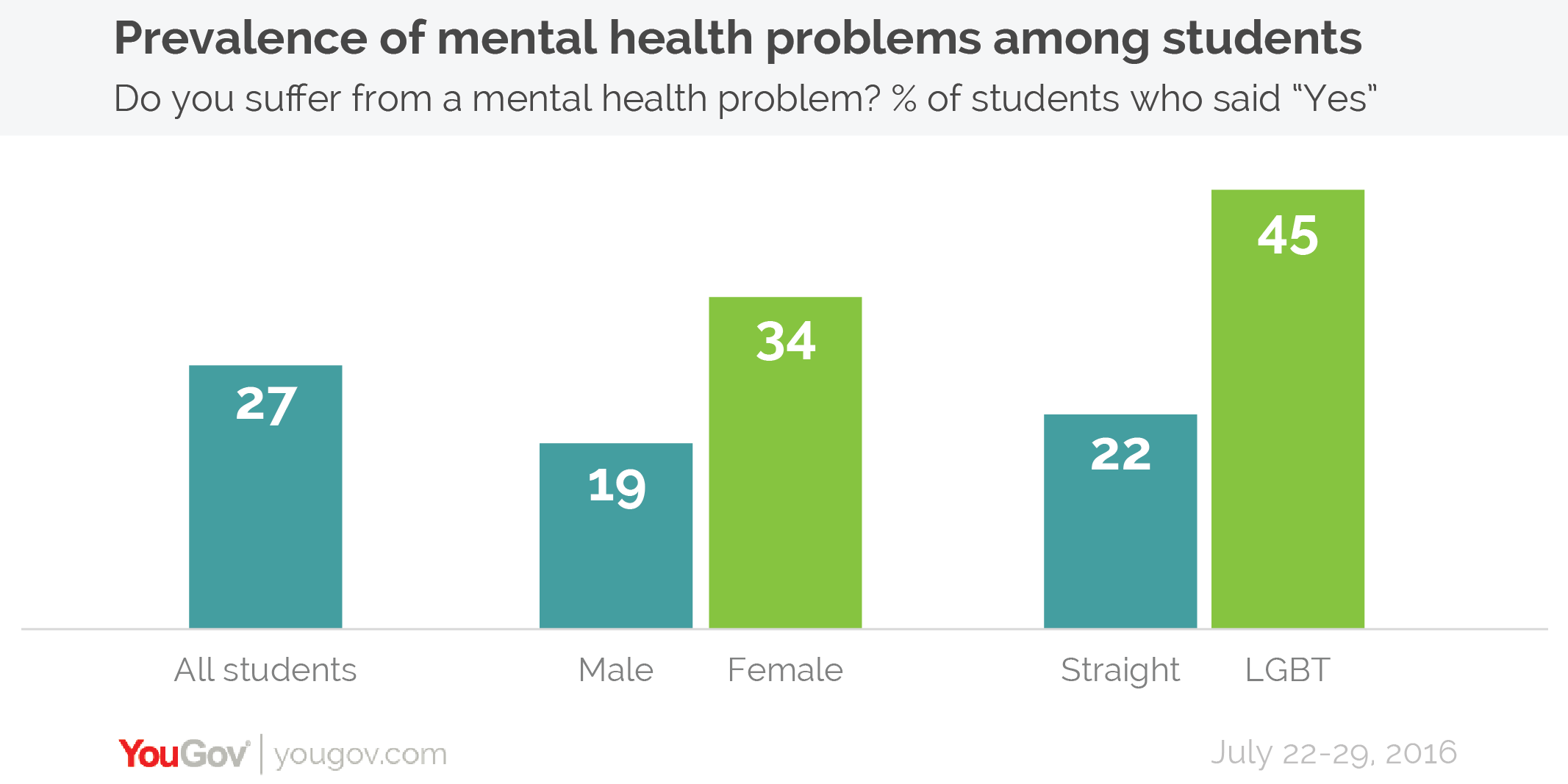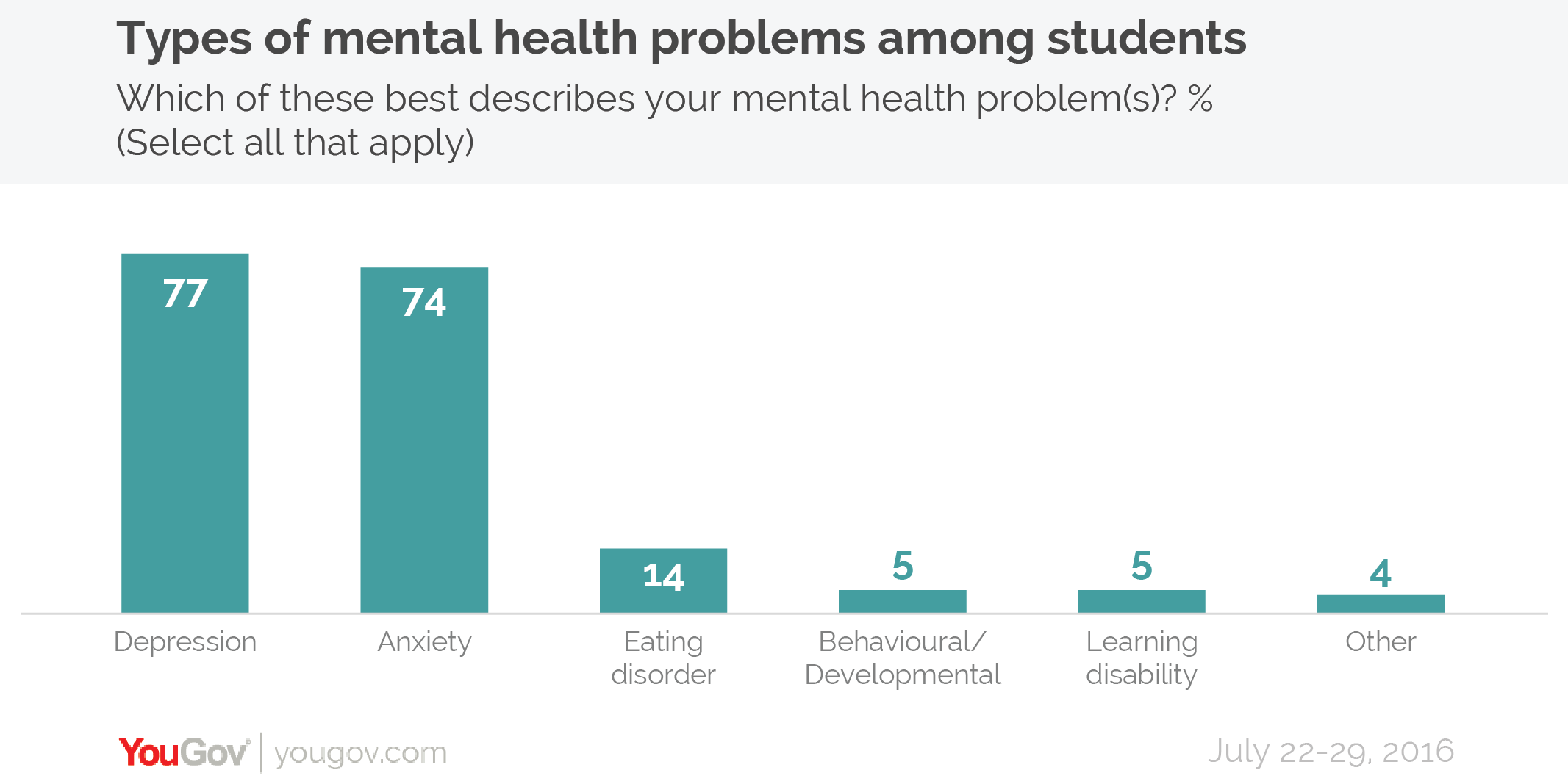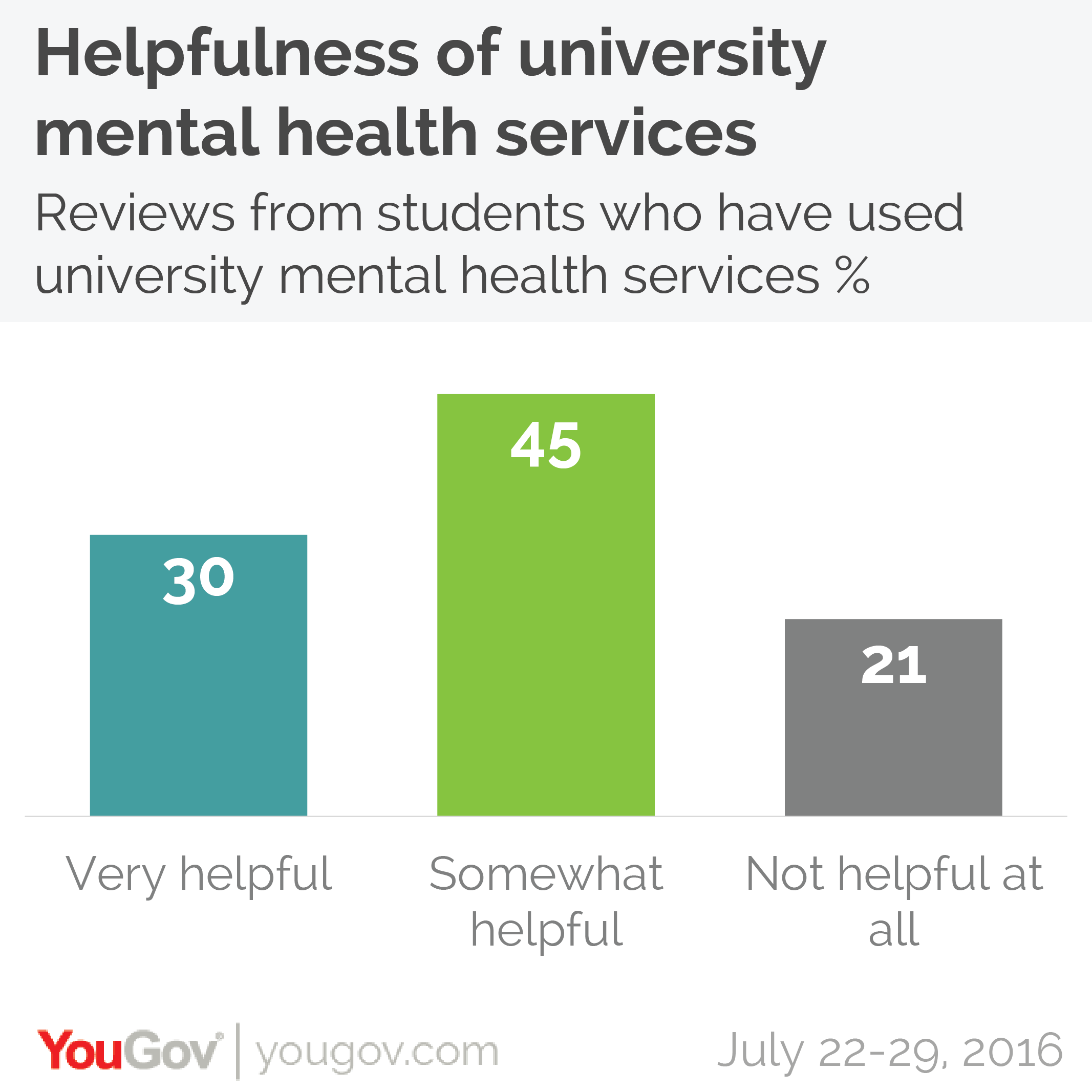Now with my idea chosen, I have undertaken some research into the issue of mental health in Universities and in this post I will show you my findings and my response to the results I have found.
I first wanted to see how much of the student population suffer from some form of mental illness at the university level. After researching government statistics I found some figures that tell of a shocking reality.


According to a YouGov survey, 1 in 5 university students suffers from some kind of mental illness with depression and anxiety being the two leading illnesses. It can be seen from these figures that mental illness affects female students more than male students, however, I remain sceptical of this fact as male suicides vastly outweigh female suicides. According to the Office of National Statistics around three-quarters of all suicides in 2016 in Great Britain were male. I also researched the leading mental illness. According to the National Health Service, there are 3 groups of symptoms of depression which are psychological symptoms, physical symptoms and social symptoms. The psychological symptoms of depressions are;
- continuous low mood or sadness
- feeling hopeless and helpless
- having low self-esteem
- feeling tearful
- feeling guilt-ridden
- feeling irritable and intolerant of others
- having no motivation or interest in things
- finding it difficult to make decisions
- not getting any enjoyment out of life
- feeling anxious or worried
- having suicidal thoughts or thoughts of harming yourself
The physical symptoms are;
- moving or speaking more slowly than usual
- changes in appetite or weight (usually decreased, but sometimes increased)
- constipation
- unexplained aches and pains
- lack of energy
- low sex drive (loss of libido)
- changes to your menstrual cycle
- disturbed sleep – for example, finding it difficult to fall asleep at night or waking up very early in the morning.
The social symptoms are;
- not doing well at work
- avoiding contact with friends and taking part in fewer social activities
- neglecting your hobbies and interests
- having difficulties in your home and family life
By making this information more well known will allow students to recognise not only when others are being affected by mental health but when they are suffering from their own mental well-being and when and where to go to receive help and where they can go which from my observations here in Lincoln University that the students tend not know where they can find information. Researching in different kinds of treatment such as Cognitive behavioural therapy (CBT) which aims to help you understand your thoughts and behaviour, and how they affect you but there are many other options depending on the severity of the mental illness. This ties back in with why I wanted to undertake this project in the first place, with the unfortunate 7th suicide at Bristol University which perhaps could have been prevented if these options had easier access to them and knowing the signs of when treatment is needed. There is a light at the end of the tunnel as the same YouGov survey found the following.

While the majority of those who answered the survey say they found the services provided somewhat helpful there is plenty of room for improvement so I undertook a one on one interview with someone who found the services at Lincoln University very unhelpful. The person in question wishes to remain anonymous for personal reasons and the reasons for seeking mental counselling is not disclosed.
- How long have you been attending Lincoln University? – 4 years
- What type of course(s) have you taken & currently undertaking? – Bachelor of Science & Masters of Bio Zoology.
- Have you sought counselling at the Student Well-Being Centre in regards to your mental health during your time at Lincoln University? – Yes
- Can you describe the process you undertook to get counselling? – I walked in to make an appointment but was told I couldn’t, so I had to attend drop-in sessions instead, eventually filed the form to get into the system but it wasn’t for the counselling service I wanted. I needed a doctor’s note to get any kind of appointment and after that, it took a month to see someone where in that time I had mostly resolved the problem myself
- Were you satisfied with the treatment or service you received? – No, I was told that it was too late in the year to receive any referrals and that what I was already doing was what they’d recommend anyway.
- Do you think the system at the Student Well-Being Centre needs improving? – Yes.
- Do you think information about the Student Well-Being Centre is easily accessible? – Not particularly.
- How would you improve the service being made available? – Better appointment system, much more streamlined. An easier way to access help without waiting weeks.
From this interview, it is clear to me that the mental health service is not responding fast enough to the students often leading to long waiting times and unforeseen hurdles to gain access to basic counselling. I hope to interview more people so I can build a more detailed profile of how the service can be improved and provide a better service for everyone.
From my research, it is clear to see that mental health is becoming less stigmatised in the mainstream culture however there much that can be done has seen with my interview and the surveys from YouGov. This issue still needs a solution to solve the current flaws in the system so I will brainstorm and start to form some ideas and solutions responding to the issue I have found in this research and in the next post, I will present what ideas I have generated. I will also start researching some current mobile solutions for mental health such as application and websites and see what works well in the digital format.